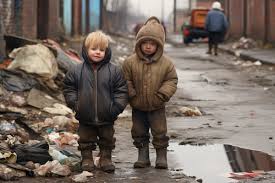A groundbreaking study published in Child Abuse & Neglect has revealed that physical neglect, often overshadowed by physical, sexual, or emotional abuse in research, can have an equally damaging effect on children’s social development. The study highlights the far-reaching consequences of neglect on children’s peer relationships, impacting their ability to socialize, gain popularity, and maintain cohesive social networks.
The research analyzed data from over 9,150 individuals, nearly 41% of whom reported experiencing some form of maltreatment before the age of 12 or prior to reaching sixth grade. Led by sociology professors Christina Kamis from the University of Illinois Urbana-Champaign and Molly Copeland from the University of Notre Dame, the study explored three critical dimensions of children’s structural peer relationships: social engagement, peer popularity, and network cohesion.
The Impact of Neglect on Peer Relationships
The study found that all forms of maltreatment negatively affected children’s social development, but physical neglect disrupted all three dimensions of peer relationships. This disruption has significant long-term implications, as early peer connections play a vital role in developing social skills and preparing for future relationships.
“Childhood adversity and maltreatment may disrupt the process of developing peer relationships, which are crucial for mental health and well-being over a lifetime,” Kamis explained. “This period is a pivotal time when children shift their focus from parents to peers, learning to connect with others. Neglect can derail this developmental process, leading to lasting consequences.”
Participants who experienced neglect were found to be less social, more withdrawn, and less likely to be named as friends by their peers. Additionally, neglected children were more likely to belong to fragmented social networks, lacking the cohesion and interconnection seen in typical peer groups.
Visible and Hidden Stigma
Physical neglect often manifests visibly through poor hygiene, inadequate clothing, or unmet basic needs, which can lead to stigmatization by peers. “The external signs of neglect may cause other children to avoid friendships with the neglected child,” Kamis noted. “At the same time, feelings of shame and low self-esteem can cause the child to withdraw from others.”
Neglected children may also develop behaviors such as aggression or difficulty regulating emotions, further reducing their desirability as friends. This dynamic reinforces the cycle of isolation and social fragmentation.
Broader Implications of the Study
While all forms of maltreatment—including physical and emotional abuse—were associated with social challenges, physical neglect uniquely affected all three dimensions studied. The researchers emphasized the importance of addressing neglect as a critical issue in child welfare.
“School can be a difficult arena for maltreated children, so recognizing their need for additional support in developing friendships is crucial,” Kamis said. “Intervening early to help these children overcome barriers to peer relationships could have lasting impacts on their social well-being.”
The study used data from the National Longitudinal Study of Adolescent to Adult Health (Add Health), a long-term research project that initially surveyed over 90,000 U.S. students in the 1990s. Participants provided insights into their peer relationships through in-school surveys, offering a unique perspective on how childhood maltreatment affects social dynamics.
Recommendations for Intervention
Given the association between childhood maltreatment and long-term mental health risks, Kamis advocates for lifetime screening and support systems. “Recognizing and addressing the social struggles of maltreated children is essential to helping them form meaningful relationships and improve their well-being,” she concluded.
The study underscores the critical need for awareness and intervention to support children who experience physical neglect, ensuring they can build the social connections necessary for a healthy, fulfilling life.
Reference:
Christina Kamis et al., Childhood maltreatment associated with adolescent peer networks: Withdrawal, avoidance, and fragmentation, Child Abuse & Neglect (2024). DOI: 10.1016/j.chiabu.2024.107125












